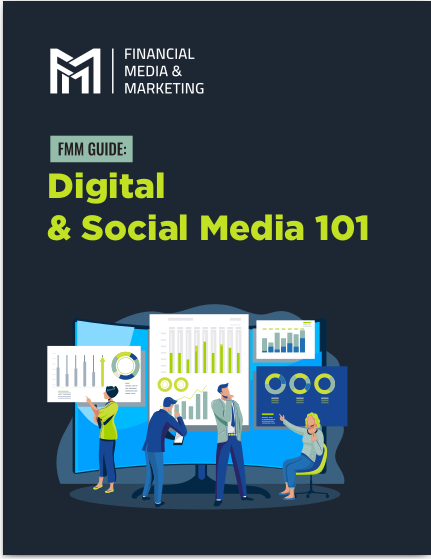Key Takeaways
-
Understanding what search engines prioritize can significantly enhance your online presence and help you attract more leads.
-
Leveraging SEO strategies tailored to financial advising ensures you stay ahead of competitors and build trust with your audience.
The Secret Sauce Behind Search Engines
Search engines are designed to connect users with the most relevant and valuable content. They use algorithms that consider hundreds of factors to rank websites, ensuring that the best content rises to the top. But for financial advisors like you, what do these algorithms truly value?
Here’s the deal: search engines prioritize content that is helpful, authoritative, and engaging. This is your opportunity to position yourself as the go-to expert in your field. Let’s break down what matters most and how you can use it to your advantage.
Content is King
When it comes to search engines, content truly reigns supreme. High-quality, relevant content is the cornerstone of any successful online strategy. But it’s not just about writing a lot; it’s about creating content that addresses the needs and questions of your target audience.
-
Write for Your Audience: Financial advisors need to craft content that addresses common client concerns. Think about questions like “How can I save for retirement?” or “What should I know about tax-efficient investments?”
-
Use Clear Language: Avoid jargon. Speak in terms that your clients and leads will understand.
-
Keep It Fresh: Regularly update your website with new articles, blog posts, or guides. Search engines reward sites that are consistently active.
-
Build Comprehensive Guides: Consider in-depth articles or resources that explore complex topics thoroughly. Longer, well-researched pieces often perform better in search results.
Keywords: The Building Blocks of SEO
Keywords are the terms people type into search engines to find information. When your content aligns with these search terms, it’s more likely to appear in search results. Here’s how to make keywords work for you:
-
Research First: Use tools to identify the keywords your target audience is searching for.
-
Use Them Naturally: Incorporate keywords seamlessly into your titles, headings, and text. Overstuffing your content with keywords can backfire.
-
Think Locally: If you serve a specific area, include location-based keywords like “financial advisor in [city].”
-
Leverage Long-Tail Keywords: Focus on more specific phrases like “best retirement planning tips for families.” These often have lower competition but high relevance.
Mastering the Art of On-Page SEO
On-page SEO refers to the elements on your website that you can optimize to rank higher in search results. Here’s a checklist:
-
Meta Titles and Descriptions: Craft concise and compelling meta titles and descriptions that include your target keywords. These are what users see in search results.
-
Headers Matter: Use headers (H1, H2, H3) to structure your content. This makes it easier for both users and search engines to understand.
-
Image Optimization: Use high-quality images, but don’t forget to compress them for faster loading. Add descriptive alt text for accessibility and SEO benefits.
-
Internal Links: Link to other pages on your website to guide visitors and keep them engaged.
-
Mobile-Friendliness: Ensure your website looks great and functions well on mobile devices. Search engines prioritize mobile-optimized sites.
-
Enhance Readability: Use bullet points, short paragraphs, and bolded key phrases to make your content easy to skim.
Why Speed and Security Matter
Page speed and security are critical ranking factors. If your site takes too long to load or lacks proper security protocols, visitors will bounce, and search engines will penalize you.
-
Fast Loading Times: Optimize images, use caching, and consider a Content Delivery Network (CDN) to speed up your site.
-
SSL Certificates: Secure your site with HTTPS. This not only builds trust with visitors but also boosts your SEO.
-
Monitor Performance: Use tools to analyze site speed and address any performance issues promptly.
Engaging Your Audience With User-Friendly Design
Once you’ve attracted visitors, the next step is to keep them engaged. A user-friendly website is essential for converting leads into clients.
Simplify Navigation
-
Use clear menus and logical page structures.
-
Include a search bar for easy access to information.
-
Add breadcrumbs to help users track their location within your site.
Call-to-Actions (CTAs) That Work
Strategically place CTAs like “Schedule a Consultation” or “Learn More About Our Services” throughout your site. Make them easy to spot and enticing to click.
-
Test and Optimize: Experiment with different CTA designs and placements to determine what works best for your audience.
-
Provide Value: Offer free resources like eBooks or calculators in exchange for email sign-ups to build your contact list.
Visual Appeal Matters
-
Use professional design elements that reflect your brand.
-
Incorporate relevant images and videos to keep visitors engaged.
The Role of Backlinks in Building Authority
Backlinks—links from other websites to yours—are like votes of confidence in your content. The more quality backlinks you have, the more authoritative your site appears to search engines.
Tips for Earning Backlinks
-
Guest Blogging: Write articles for reputable websites in the financial niche.
-
Shareable Content: Create infographics, guides, or videos that others will want to link to.
-
Engage With the Community: Partner with local businesses or associations and ask them to link to your site.
-
Build Relationships: Reach out to industry influencers and offer mutual collaboration opportunities.
The Power of Local SEO for Financial Advisors
If you primarily serve clients in a specific area, local SEO can be a game-changer.
Optimize Your Google Business Profile
-
Claim and verify your profile.
-
Add accurate business information, including address, phone number, and operating hours.
-
Encourage satisfied clients to leave reviews.
Location-Specific Content
Create content tailored to your local audience, like “Top Investment Strategies for [City] Residents.”
-
Participate Locally: Engage in community events or partnerships and promote them on your site.
Tracking and Measuring Success
You can’t improve what you don’t measure. Regularly analyze your SEO efforts to see what’s working and what needs adjustment.
Key Metrics to Monitor
-
Traffic Sources: Where are your visitors coming from?
-
Bounce Rate: Are visitors staying on your site or leaving quickly?
-
Keyword Rankings: How are your target keywords performing?
-
Conversions: Are visitors taking desired actions like scheduling consultations?
-
Engagement Metrics: Time spent on site and pages per session reveal how interested users are in your content.
Refine Strategies
-
Use data insights to tweak underperforming pages.
-
Test new approaches and track their effectiveness.
Staying Ahead of the Competition
Search engine algorithms are always evolving, and so should your strategies. Stay informed about updates and trends to maintain your competitive edge.
Continuous Learning
-
Subscribe to SEO newsletters.
-
Attend webinars or workshops.
-
Experiment with new strategies and learn from the results.
-
Stay Agile: Be prepared to adapt quickly to changes in the SEO landscape.
Building Trust Through Consistency
Your online presence is an extension of your brand. By consistently providing value through your content and maintaining a user-friendly site, you’ll build trust with both search engines and potential clients.
-
Maintain Transparency: Clearly communicate your services and expertise.
-
Engage on Social Media: Share your content and interact with followers to build credibility.
Leverage Your Online Potential
Understanding what search engines value and applying that knowledge strategically can position you as a leader in the financial advising space. By optimizing your website, engaging your audience, and staying up to date with SEO trends, you’ll attract more leads and convert them into loyal clients.










